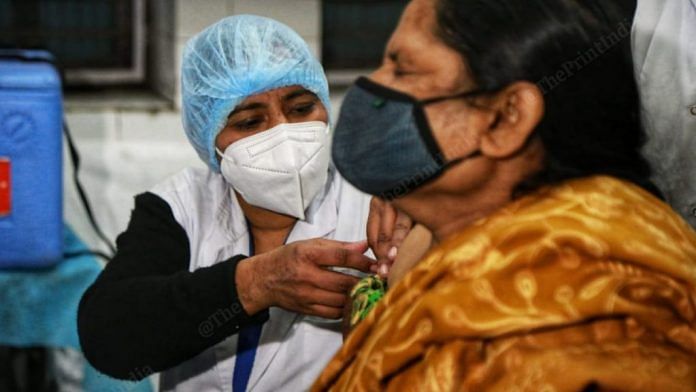Prime Minister Narendra Modi’s announcement about the approval of the two Covid-19 vaccines undeniably serves as a source of jubilation among the public. The news comes like the light at the end of the tunnel after the immense toll that the pandemic has taken on the country, exploiting its worst social and economic insecurities.
However, the delight is marked by its own black spot.
A survey conducted by the Vaccine Confidence Project discovered that in India, 87 per cent people intend to get vaccinated but 34 per cent of the respondents were worried about the side-effects and 16 per cent were concerned about the trials.
Both the vaccines approved by the drugs regulator of India — Covishield by the Oxford University and manufactured in India by the Serum Institute of India and the Covaxin by Bharat Biotech — have been the recipient of suspicion and frenzy from the public.
The haste with which the manufacturers got the vaccines through human trials was accompanied by a lack of transparency not only on the part of the manufacturers but also on the part of the regulators. The unavailability of information in the public domain undermines confidence in the vaccines, thus strengthening the resistance by the anti vaccine lobby.
Increasing public confidence in vaccines
The government along with the manufacturers must take some strong measures to bolster the confidence of the public.
Firstly, the authorities must release the data of the Phase 3 clinical trials of Covaxin and Covishield. The purpose of clinical trials is to test the efficacy and safety of a vaccine prior to it being approved. However, the trials of Covishield only tested the safety and immunogenicity of the vaccine and not its efficacy. Nonetheless, Covishield was approved for emergency use on the basis of efficacy data from UK regulators that was neither published nor made available to the public.
Amid all this, a legal notice was sent to the Serum Institute of India by a participant of the trials after experiencing neurological implications. Such serious allegations in the absence of crucial information make it impossible for the public to accept hollow assurances and comfort. Companies like Pfizer and Moderna have set up some solid precedents by conducting the live telecast of the examination of vaccines and releasing the briefing documents of the clinical trials in the public domain.
It’s high time that the Indian government, too, lives up to its claims of integrity and ethics and puts some concrete data out there for the public.
Secondly, the government needs to be accountable. Instead of evading the queries on the veracity of the indigenous vaccine, it should stand firm and back up its claims with scientific and logical proofs.
The Right to Information provided by Article 19 of the Constitution infuses enough authority in the public to question the government, especially on grave matters concerning public health.
The government has to understand that people wouldn’t inject a foreign substance in their bodies without asking questions about its credibility. Therefore, it’s the responsibility of the government to construe the prevalent questions as a plausible public reaction and not just a political propaganda of the leaders from the other side of the political spectrum.
Govt should take help from local health authorities, ASHA workers
It’s easier for people to develop their trust in something when it comes from someone close to them (a territory brilliantly conquered by WhatsApp forwards). We are very well aware about the blessing that came in the form of ASHA workers during the pandemic.
Therefore, India already has a great opportunity by having a system in place at the local level. The government authorities should increase transparency about the whole process of release of vaccines by disbursing information through local health workers.
Though a majority of the population doesn’t possess technical medical knowledge, a word of awareness from someone who is ‘one of them’ will definitely help in making the concept more tangible for general comprehension.
While public trust deficit has been a characteristic trait of the current government because of its constant disregard for credible information, there’s a reason that this time the government cannot afford to get away with the same.
According to the vaccination plan, elderly and people with critical infirmities will be prioritised during the vaccination drive. In the absence of adequate confidence and demonstrable proof, a rational person may not voluntarily go ahead with putting their loved ones in such a vulnerable position.
This may cause the whole initiative to come to a halt while levying grave health and economic costs.
Shweta Shah is a student of National Law School of India University, Bengaluru



